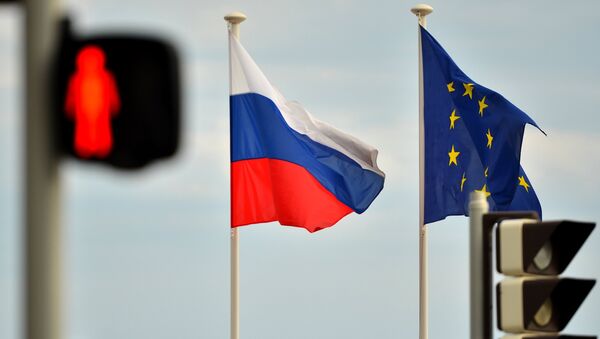WASHINGTON, October 2 (RIA Novosti) - European Union and Russia could work together if the Ukrainian conflict is frozen and the European Commission is likely to respond to limiting of hostilities in Ukraine by lessening the sanctions regime against Russia, said Simeon Djankov, former deputy prime minister and minister of finance of Bulgaria.
"If you notice, literally in the last two weeks the discussion evolved from incoming President [of the European Commission, Jean-Claude] Juncker and a number of his commissioners has been on if there is a limit to the hostilities, if we reach a position of frozen conflict, then we can discuss how we and the Russians can work together," said Djankov at a Thursday Peterson Institute of International Economics event on global economics prospects.
Djankov noted that this position was in stark contrast to statements made by EU officials in the summer saying that without a long-term solution, Russia would face increased sanctions.
European economic sanctions have had a disproportionate impact on the EU's 28 member states and European businesses, said Djankov. He added that the European business leaders have voiced opposition to the sanctions. "[They] have been saying the costs are disproportionately affecting our economies, so we are very unlikely in the future to go with other sanctions," he said.
Further, he noted that those countries have been pressuring the incoming European Commissioners to explain under what conditions the current sanctions regime can start begin alleviated.
Since Crimea vote to rejoin with Russia in March, the European Union, the United States and other western partners have levied sanctions against Russia on three separate occasions. The successful ceasefire negotiations that took place in Minsk, Belarus in early September have served as a confidence building measure, opening discussions of sanctions relief. In October, the European Commission is scheduled to discuss modifying Russian sanctions, an act that will require unanimous consent.



